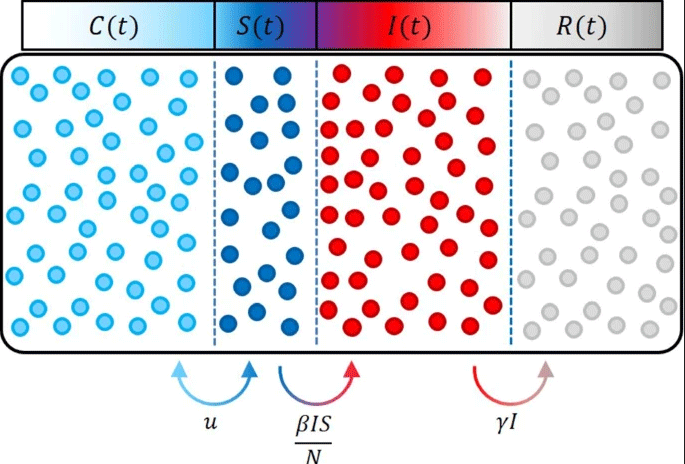The currently ongoing COVID-19 pandemic confronts governments and their health systems with great challenges for disease management. Epidemiological models play a crucial role, thereby assisting policymakers to predict the future course of infections and hospitalizations. One difficulty with current models is the existence of exogenous and unmeasurable variables and their significant effect on the infection dynamics. In this paper, we show how a method from nonlinear control theory can complement common compartmental epidemiological models. As a result, one can estimate and predict these exogenous variables requiring the reported infection cases as the only data source. The method allows to investigate how the estimates of exogenous variables are influenced by non-pharmaceutical interventions and how imminent epidemic waves could already be predicted at an early stage. In this way, the concept can serve as an “epidemometer” and guide the optimal timing of interventions. Analyses of the COVID-19 epidemic in various countries demonstrate the feasibility and potential of the proposed approach. The generic character of the method allows for straightforward extension to different epidemiological models.







